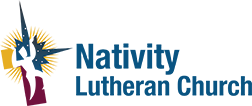
Today is Yom HaShoah-Holocaust Remembrance Day
It is pertinent to remember the Holocaust. The Nazi regime murdered 6 million Jews as well as millions of other innocents, including Roma, Slavic, and Sinti peoples, people with disabilities, LGBTQI+ people as well as political dissidents, among other groups.
We join Jewish people throughout the United States, Israel, and the rest of the world in commemorating one of history’s most terrible tragedies, the Holocaust. The Nativity community offers our respects to the victims’ families and those who are survivors. Let us all keep in the commitment to keep the promise of “never again.”
The truth of what happened in Europe during the Holocaust, as well as the crimes and agony inflicted on millions of innocent people by the Nazi regime, must never be forgotten by the international community. Entire families were decimated. Individuals and families were ripped apart.
It has been irrevocably written into the pages of human history, and it is our shared responsibility to ensure that the legacy continues. The Shoah cannot be erased from our collective consciousness, particularly as the number of survivors continues to decline.
The truth must be grasped and communicated to future generations to order to exist in eternity.
LET US PRAY:
Loving God, we come to you with heavy hearts, remembering the six million Jewish souls murdered during the Holocaust.
In the horrors of that history, when so many groups were targeted because of their identity, and in genocides which followed, we recognize destructive prejudices that drive people apart.
Forgive us when we give space to fear, negativity and hatred of others, simply because they are different from us.
In the light of God, we see everyone as equally precious manifestations of the Divine, and can know the courage to face the darkness.
Through our prayers and actions, help us to stand together with those who are suffering so that light may banish all darkness, love will prevail over hate and good will triumph over evil. AMEN
- “I swore never to be silent whenever and wherever human beings endure suffering and humiliation. We must always take sides. Neutrality helps the oppressor, never the victim. Silence encourages the tormentor, never the tormented.” — Elie Wiesel.
- “Blessed is the match consumed in kindling flame. Blessed is the flame that burns in the secret fastness of the heart. Blessed is the heart with strength to stop its beating for honor’s sake. Blessed is the match consumed in kindling flame.” — Hannah Senesh
- “Six million of our people live on in our hearts. We are their eyes that remember. We are their voice that cries out. The dreadful scenes flow from their dead eyes to our open ones. And those scenes will be remembered exactly as they happened.” — Shimon Peres
- “Thou shalt not be a victim, thou shalt not be a perpetrator, but, above all, thou shall not be a bystander.” — Yehuda Bauer
- “We must be listened to: above and beyond our personal experience, we have collectively witnessed a fundamental unexpected event, fundamental precisely because unexpected, not foreseen by anyone. It happened, therefore it can happen again: this is the core of what we have to say. It can happen, and it can happen everywhere.” — Primo Levi
- “I don’t want to have lived in vain like most people. I want to be useful or bring enjoyment to all people, even those I’ve never met. I want to go on living even after my death!” — Anne Frank
- “The duty of the survivor is to bear testimony to what happened … You have to warn people that these things can happen, that evil can be unleashed. Race hatred, violence, idolatries — they still flourish.” — Elie Wiesel
- “Fiction cannot recite the numbing numbers, but it can be that witness, that memory. A storyteller can attempt to tell the human tale, can make a galaxy out of the chaos, can point to the fact that some people survived even as most people died. And can remind us that the swallows still sing around the smokestacks.” — Jane Yolen
- “Survival is a privilege which entails obligations. I am forever asking myself what I can do for those who have not survived.” — Simon Wiesenthal
- “Nations cannot be saved and must not be saved as an afterthought or from considerations of cost-benefit. Unless the moral fire burns within us, the lessons of the Holocaust will never be learned.” — Reuven Rivlin
RESOURCES FOR FAMILIES
Teaching Materials for the Holocaust
Holocaust Resources- World Holocaust Remembrance Center
BOOKS
Benno and the Night of Broken Glass by Meg Wiviott
This engaging picture book for kids in about grades 2 to 5 features Benno, a cat who enjoys walking around his Berl



This newer classic holocaust book for YA readers by Irish writer John Boyne was an instant critical success when it was published ten years ago. It’s the story of 9-year-old Bruno in 1942, who returns to his home in Berlin to discover he has to move to a strange place for his father’s work. His father will run some sort of place with a barbed wire fence, soldiers, and lots of skinny, dirty workers wearing striped pajamas. He thinks the place is called “Out With.” Eventually, he befriends a Jewish boy on the other side of the fence.
It’s a fresh perspective to introduce the Holocaust to older kids, considering the protagonist is a non-Jewish son of a Concentration Camp leader. And while a lot about the story is suspenseful and horrifying, it’s also remarkably charming and relatable. (Recommended Ages 12 and up)


Written in graphic novel format and filled with Mare Lizano’s lovely, accessible illustrations, Dauvillier has created a perfect introductory book about the Holocaust for younger readers. In it, a grandmother describes her early life in Paris to her granddaughter, and how friends and neighbors hid her away when her parents were taken to concentration camps. Her riveting story — which she had never shared even with her own child — brings the two generations closer. (Recommended Ages: 6-10)
How to Be a Refugee By Simon May


While we often hear stories of those who escaped or perished during the Holocaust, Simon May tells a very different, much rarer story: of those who refused to believe they were Jewish. May tells the gripping story of his mother and his two aunts, whose trajectories included converting to Catholicism and securing ‘Aryan’ status with high-ranking help in the Nazi regime. After the war, May’s mother continued to conceal her identity, leading him on an illuminating quest into what constitutes belonging, and home.


